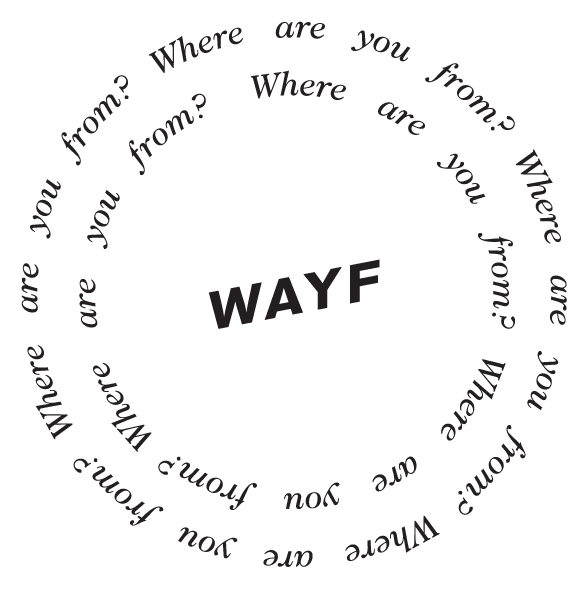Jo Pugh
“What do you mean?” That’s what I wish I could say to the question Where are you from? Or better, there’d be no question to answer at all.
In a mostly white town, I made up one third of the brown people at primary school. The other two thirds were my siblings. In high school, this was only marginally better – I’d say I was one fifth of the lot. I conveniently have the Welsh surname ‘Pugh’ which ironically was mispronounced and used to make brown skin ‘Pooooooooooooo’ jokes.
the brown
it makes sense
when suspended by rope
pushed onto a bed
palm trees, waves, sand
begs your pardon
we’ll take you again
As is the way with white supremacy, any brown or black person must deal with manifestations of the condition in some form during their time. It hides in the tiniest forms, beginning with indifference and unwillingness to ‘get involved’ and moving to the more overt, damaging and violent manifestations of supremacy. A white person asking, “Where are you from?” is a form of this – it is their sense of entitlement based on their whiteness. And more, it normalises white supremacy by masking it in this ‘curiosity’.
What else is asking “Where are you from?” if it is not white supremacy?
Once upon a time and after years of being one of the few brown people at the regional Victorian primary school I attended, I liked the question. Rather than being bullied for being brown, I was now getting attention because of it. I do not feel this way anymore. The ignorance in the question, particularly when it comes at me without relevance to anything in the conversation I am having – if I am having a conversation with the questioner at all – angers me. Entitlement. Privilege. Tokenism. These are words that come to my mind.
an ‘other’
other
not quite brown
they would never enjoy
not white
a full view
Navigating the “Where are you from?” question is hard. My well-articulated responses often don’t come until after the encounter. One time, in a workplace where I had to maintain professionalism a male client was pushing me. “Oh, but where though?” My next best option: “I grew up in Gippsland.” “Yeah, but what about your parents?”. In the moment, I didn’t know how to diffuse the situation without causing myself more hurt, so I responded: “My mother is Indian”. His next harmful and tasteless move was a combination of white supremacy, fetishisation and toxic masculinity: “I knew this wasn’t an Australian arse,” as his hand cupped to slap my bum.
In the context of so-called Australia, the “Where are you from?” question has deeper problematic undertones. The people who are truly ‘from here’ are people whose history and culture have continually been denied and erased by the wrongly entitled and understood ‘from here’ people. To the people asking, the settler colonial state condition foregrounds ‘otherness’, but criticising this is pertinent. So, I recognise that in cases in the past (and likely in the future) when to disarm I respond, “I am from here”, I am not entitled to say this. As a settler, ‘from here’ is not mine to claim.


